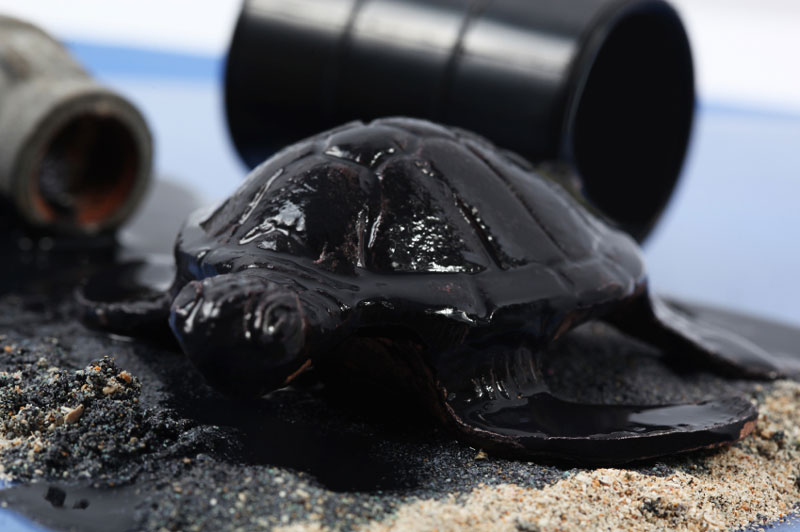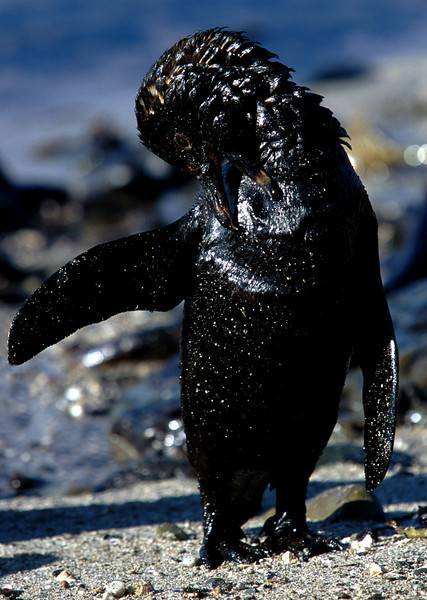

Oil spills are one of the cruelest causes of death among seabirds. Common sources of these spills include the flushing out of oil tankers with sea water, the dumping of old crankcase oil and the irresponsible disposal of oil products by refineries or consumers. Oil in the sea remains floating on the water’s surface indefinitely. 1
Even a dime sized amount of oil can be lethal for a bird, destroying its ability to fly or insulate itself. Therefore, the bird is vulnerable to dying from hypothermia, drowning, or starvation. The birds are crippled once oil is on their feathers. If oil is ingested, the toxic compounds can harm their bodily organs and impair their ability to reproduce by reducing the number of eggs or causing abnormalities in their young. The World Wildlife Fund estimates that over 300,000 seabirds are killed off the southeastern coast of Canada alone each year. 2
An Infamous Spill
On March 24th, 1989, the the Exxon Valdez tanker released enough oil in Prince William Sound, Alaska to fill almost 125 Olympic sized swimming pools, which spread out over 1,000 miles of Alaskan coastline. The tanker spilled almost 11 million gallons of oil which took 4 summers to clean up. However, the amount spilled represents only 2% of the oil used by the United States each day in 2008. The clean-up cost Exxon over 3.5 billion dollars and demanded over 10,000 workers and 1,000 boats. The area affected by this spill was still not fully recovered in 2008 in regards to the coastline’s health and the fish population. 3
Ethical Dilemma
There is a perplexing ethical dilemma involved with transporting oil via ships. Oil is a crucial fossil fuel in high demand which must be supplied to various countries. An estimate by the U.S. National Oceanic and Atmospheric Administration stated that the U.S. alone uses about 700 million gallons of oil daily. Globally, the number is almost 3 billion gallons. However, the potential for damage due to oil spills is catastrophic. Oil spills are an inevitable consequence of our global oil use and the demand to transport oil long distances from the site of origin to the refinery. Unfortunately, there are serious negative consequences to seabirds when petroleum products are accidentally dumped into the water. Seabirds are highly vulnerable to these spills.4 Therefore, our increasing consumption of oil raises an ethical dilemma. When spills are unavoidable, is our continued use of oil justified? More importantly, is it ethical?
- Irstan R. Barnes, “Oil Slick is Shroud for Birds,” The Washington Post, July 22, 1962, accessed November 28, 2010. ↩
- Ibid. ↩
- “Spill Remediation,” Environmental Science: In Context 2 (2009). ↩
- Irstan R. Barnes, “Oil Slick is Shroud for Birds,” The Washington Post, July 22, 1962, accessed November 28, 2010. ↩
